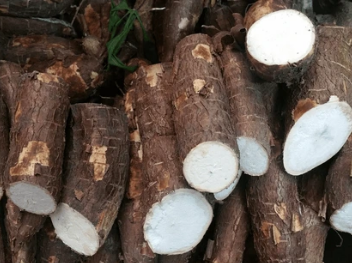CASSAVA
cassava


The Hidden Gem of Cassava: Unlocking its Value in the Global Economy
Cassava, also known as yuca or manioc, is a staple crop in many tropical regions, particularly in Africa, Asia, and Latin America. This versatile root has been a vital source of food, income, and employment for millions of people worldwide. Despite its importance, cassava remains an underappreciated crop in the global economy. In this blog post, we'll delve into the significance of cassava, its uses, and the potential benefits it holds for the world economy.
Global Production and Trade
Cassava is the third-largest source of carbohydrates in the tropics, after rice and maize. According to the Food and Agriculture Organization (FAO) of the United Nations, global cassava production reached 292 million metric tons in 2020. The top cassava-producing countries are Nigeria, Thailand, Indonesia, Brazil, and Ghana.
The global cassava market is valued at approximately $4.5 billion, with Africa accounting for over 60% of production. Cassava is traded internationally in various forms, including fresh roots, dried chips, flour, and starch.
Uses of Cassava
Cassava's versatility is a significant factor in its economic importance. The crop has multiple uses:
1. Food Security: Cassava is a primary food source for over 500 million people, particularly in Africa. It's consumed boiled, mashed, or fried, and is used in traditional dishes like fufu and gari.
2. Animal Feed: Cassava is used as a feedstock for poultry and livestock, providing an affordable alternative to corn and soybean meal.
3. Industrial Applications: Cassava starch is used in textiles, paper production, and pharmaceuticals.
4. Biofuel: Cassava can be converted into ethanol, providing a sustainable alternative energy source.
5. Gluten-Free Products: Cassava flour is used in gluten-free baked goods, snacks, and beverages.
Economic Benefits
Cassava contributes significantly to the economies of producing countries:
1. Employment: Cassava farming and processing provide livelihoods for millions of smallholder farmers, processors, and traders.
2. Income Generation: Cassava exports earn foreign exchange for producing countries, improving their balance of payments.
3. Poverty Reduction: Cassava production and trade help alleviate poverty in rural communities.
4. Food Security: Cassava enhances food availability and affordability, particularly in regions with limited access to other staple crops.
Challenges and Opportunities
Despite its potential, the cassava industry faces challenges:
1. Productivity: Low yields and inefficient farming practices hinder cassava production.
2. Market Access: Limited market access and lack of standardization constrain cassava trade.
3. Climate Change: Cassava is vulnerable to climate-related stresses, such as drought and pests.
To overcome these challenges, opportunities exist:
1. Research and Development: Improving cassava varieties, farming practices, and processing technologies.
2. Market Development: Establishing standards, grading systems, and market infrastructure.
3. Value Chain Development: Encouraging private sector investment in cassava processing and trade.
4. Regional Trade: Strengthening regional trade agreements to facilitate cassava trade within Africa and other regions.
Conclusion
Cassava is a vital crop in the global economy, offering numerous benefits, from food security to industrial applications. By addressing the challenges facing the cassava industry and leveraging opportunities for growth, we can unlock the full potential of this hidden gem. As the global demand for cassava continues to rise, investing in cassava research, market development, and value chain improvement will ensure its contribution to sustainable economic growth, poverty reduction, and food security.
Sources:
- Food and Agriculture Organization of the United Nations (FAO)
- International Fund for Agricultural Development (IFAD)
- African Development Bank (AfDB)
- Cassava: Adding Value for Africa (CAVA) Project
- International Institute of Tropical Agriculture (IITA)
